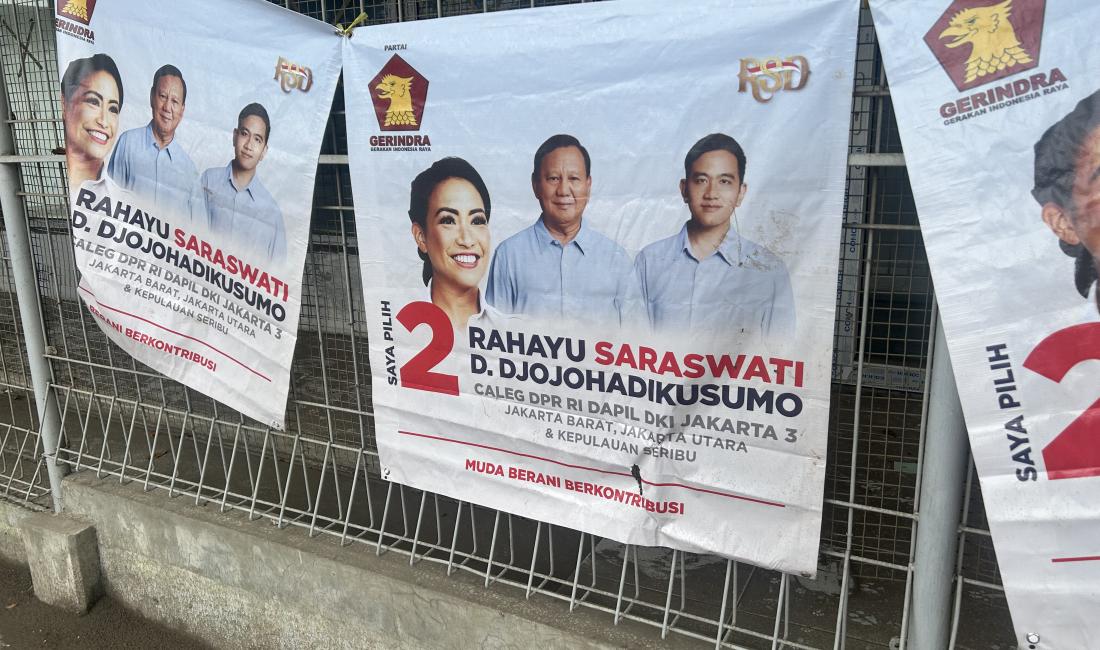2024's "Year of Elections" damaged democracy. Let's stop devoting so many resources to voting.
This column was co-published and produced with Zócalo Public Square. Photo by Joe Mathews.
For the new year, you, my fellow Californians, might have resolved to give up booze, bonbons, or maybe your bong.
But I think you should join me in giving up elections instead.
Or, at the very least, in giving up the habit of investing money, time, and especially hope that elections might improve our communities and our world.
Because democracy and elections, often used as synonyms, are two very different things.
That was the central lesson of 2024, the biggest election year in history. More than half of humanity, 4 billion of us, lived in the more than 70 countries that held elections in 2024. Hopes were high that 2024 would be a year of greater democracy and positive change.
Instead, the Year of Elections boosted autocracies, inspired violence, hamstrung governments, frustrated people, and ultimately damaged democracy.
“Our obsession with elections is killing democracy,” wrote Josh Lerner, co-executive director of the global democracy hub People Powered, in Boston Review. “We pour billions of dollars into elections, but… most people don’t believe that elections are delivering actual democracy—government by and for the people—and they’re right.”
In many countries, 2024 elections were little more than tools of oppression. Freedom House, a Washington D.C. non-profit that tracks democracy and freedom worldwide, found 22 contests in which incumbents attempted to jail or disqualify opponents. In at least 16 elections, Freedom House found, “voters had no real choices at the ballot box” because of electoral manipulation. Among these were elections in Algeria, Azerbaijan, and Rwanda where incumbents won 80 percent or more of the vote.
In Iran, mullahs criminalized any boycotts or criticism of its elections. In Russia, the Kremlin threatened to kick university students out of school if they did not vote in the unfair presidential election. And, in Venezuela, Nicolas Maduro’s regime stole the election outright, falsifying results to overturn the opposition’s victory and then arresting thousands of actual winners.
Election-related violence was widespread. Freedom House found it to be a major factor in 26 of the 62 elections it monitored; election workers faced violent attacks in 12 of these contests.
Assassination campaigns, by criminal groups seeking regional control, targeted candidates for local office in Mexico and in South Africa. India’s elections occasioned a wave of ethnic violence. France saw more than 50 documented assaults against candidates and activists, by both the far left and the far right. A South Korean opposition leader was stabbed, and Donald Trump was the target of two assassination attempts in the U.S.
Election losers have long protested results. What was remarkable about 2024 was the rise of the “sore winner.” In the nation of Georgia, the ruling party sought to use its parliamentary victory to make the opposition illegal and unconstitutional. Trump has continued his threats to jail political opponents and media figures, even after his victory. And in Mexico, outgoing president Andrés Manuel López Obrador used his party’s landslide victory, and the election of his chosen successor as president, to end the independence of the judiciary, which had been one of the few remaining checks on his party’s rule.
To be fair, some democratic optimists have claimed to see good news in 2024 elections. Incumbent parties and politicians lost power or legislative seats throughout the world, and most notably in India, South Africa, and Japan. And there were peaceful transfers of power in Senegal and Botswana. But shifts in power, rather than offering optimism and new beginnings, mostly produced strife and fear. South Korea’s attempted presidential coup in December was the culmination of heightened political warring with an opposition party that won Congress in April elections.
This ugly year ought to teach us all a hard lesson: Elections, once seen as the epitome of democracy, are actually poisonous to democracy. Indeed, elections may explain why popular support for democracy is declining around the world. “Elections are fundamentally disempowering,” says Leonora Camner, executive director of the global nonprofit Democracy Without Elections. “They're about dividing people with slogans and stoking fears.”
Camner suggests that a logical response to 2024 would be to de-emphasize elections and refocus our energies on building democratic processes that empower people to govern themselves and their communities. But there are few signs of a shift. Why? Because powerful people and interests control elections. Their money determines who gets to be a candidate and which parties win.
In my country, the United States, the post-election conversation has been infuriating. The Democratic Party, which had claimed to be committed to democracy, now offers little opposition, all but surrendering to the anti-constitutional, anti-democratic plans of an authoritarian new administration. Leading liberals, who should be embracing democratic reforms, are instead obsessing about election strategy, and trying to keep donors on board for the 2026 midterm elections.
American philanthropist have also doubled-down on elections. After the election, Joe Goldman, president of the Democracy Fund, a U.S. foundation devoted to multiracial democracy, has praised his coalition’s strategy of spending more money earlier in the 2024 election cycle, and urged more consistent funding of election-oriented groups so they don’t see drops in their budgets in 2025
What should we do beyond elections? In a must-read post-election piece, Matt Leighninger, director of democratic innovation for the National Civic League, America’s leading organization devoted to civic engagement, suggested 10 changes to empower people to make more government decisions themselves.
These included greater use of citizens assemblies, participatory budgeting, digital democratic tools (like ActiVote), and direct democracy (like initiative and referendum). Leighninger also called for rebuilding local democracy and community power by rewriting city charters, making public meetings more civil and productive, boosting neighborhood groups and civic associations, and better measuring the effectiveness of democratic self-government.
Congress could even help—by enacting bipartisan legislation, the Building Civic Bridges Act, to boost democratic infrastructure.
“The limited, frustrating and expensive version of democracy we have today, where parties tout voting as the main way for Americans to participate in governance, isn’t compelling to Democratic, Republican or independent voters,” Leighninger wrote. “Our system has failed to deliver the benefits and changes we want. It doesn’t make people feel like they have a voice, or that they matter.”
If the Year of Elections is to have any positive impact, it might be to separate us from our devotion to elections, so that we might pursue democracy instead.




